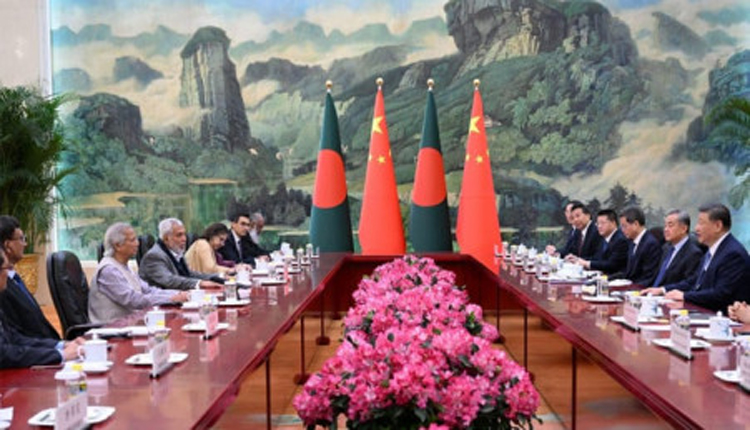New Delhi: Muhammad Yunus, the head of Bangladesh’s interim government, embarked on a high-profile visit to China last week, a trip Dhaka is touting as a triumph. Greeted with a red carpet and warm gestures, Yunus stressed the ties the two nations have developed, calling China an important friend. “Our relationship has been fortified in the last few years,” he said, noting strong trade and mutual benefits from their collaboration. Bangladesh is eager to flaunt the respect Yunus garnered, indicating a diplomatic victory on the international arena.
During his visit to China, Yunus demonstrated his desire to deepen his relationship with Chinese President Xi Jinping, even subtly criticising India. He noted that India’s northeastern states, which are landlocked, depend on Dhaka to act as a regional guardian — comments that appeared directed at inflating tensions between Beijing and New Delhi. Back home, the visit drew accolades; Mirza Fakhrul Islam Alamgir, secretary-general of the Bangladesh Nationalist Party (BNP), called it a “major success”. He highlighted China’s rich participation in global trade and its ongoing investment in Bangladesh’s business sector, describing it as a “ray of hope” for the country.
However, the actual impact of the visit remains a topic of debate. Near Yunus’ exit, Xi reached out to India too, messaging President Draupadi Murmu on Tuesday with a “Dragon-Elephant Tango” vision — the metaphor used for harmonious cooperation between the two Asian giants. Xi emphasised that India and China, as major members of the Global South, could strengthen each other’s success through pragmatic cooperation in trade and other areas. That shift raises questions about China’s larger ambitions and whether Bangladesh’s much-touted trip produced the concrete dividends it boasts.
Analysts say Beijing may be using Bangladesh to extend its regional reach, a push it had a difficult time pursuing under Sheikh Hasina’s India-friendly government. Hasina’s absence would give China an opening to pull Yunus — and Bangladesh — further into its orbit. This, however, comes with risks.” Critics say Bangladesh could find itself in a similar predicament to Sri Lanka, saddled with debt and civil strife, or Nepal, where popular protests have escalated into demands for a return to monarchy due to its over-reliance on China.
The visit yielded agreements on economic and technical cooperation in the deliverables front. The two sides celebrated the 50th anniversary of the establishment of diplomatic ties and committed to respecting and abiding by the Five Principles of Peaceful Coexistence, deepening political mutual trust, aligning development strategies, and promoting a “China-Bangladesh Comprehensive Strategic Cooperative Partnership” for mutual benefit. However, the concrete, game-changing results that Dhaka has touted do not justify such pledges. Yunus’ “gift” from China seems more symbolic than substantive, and the visit’s long-term value is debatable.



Comments are closed.